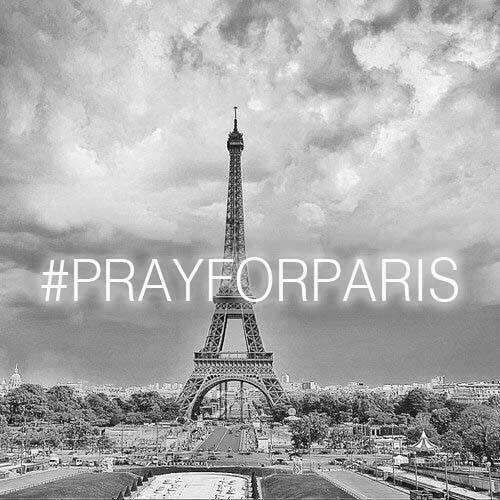 In the wake of the terrorist attacks in Paris last night, the observations offered by a number of writers followed a predictable script.
In the wake of the terrorist attacks in Paris last night, the observations offered by a number of writers followed a predictable script.
Some expressed shock and surprise. Some urged that we avoid seeking vengeance. Some encouraged their readers to remember that not all Muslims endorse the kind of violence that was planned and executed. Others urged forgiveness and hinted at the West’s own culpability.
I understand the anguish and surprise that people have expressed. It is a testimony to the fundamental goodness and goodwill of people that we can still be shocked.
I have also appreciated the caution and caveats that others have offered. No, not all Muslims are committed to bending the world to their demands, and desire for vengeance (while understandable) leaves the victim captive to the violence of the murderer.
But I’ve heard the surprise and advice before and, strangely, the combination lacks moral fiber and Christian realism. We’ve been here before. We will be here again and we will retreat to a safe place where we will wait to be shocked and cautioned when the next attack occurs.
I found myself wondering what kind of durable wisdom the Christian tradition can offer in such an ugly, conflicted, and blood-soaked moment.
Can we offer a window into the world’s events that spares us the naiveté that leaves us to be blind-sided by events that are the day-to-day reality for billions of human beings around the world? Can we offer wisdom about the nature of those events that speaks to the spiritual character of this kind of brutality? Can we suggest, at least in principle, a way forward that comports with Christian conviction and human realities?
I think there is. Although, like most enduring spiritual truths they aren’t easy truths:
Truth #1: People are not fundamentally good and sin, with all its attendant horror and murderous intent, is a reality. At the margins of life the goodness of God bends us to order, to honesty, to love, and to mercy; and when we give ourselves to God’s goodness, a capacity for order, honesty, love, and mercy are deepened in us.
These are the gifts of being made in the image of God. But that image is not uncolored or undistorted.
Our tendency to believe that it is otherwise, our assumption that opportunity, therapy, or reason can shift that reality leaves us vulnerable to childish surprise and it blinds us to our brokenness.
The wise woman, the wise man – like Tolkien’s Frodo – knows that he or she is a beneficiary of God’s grace, ever dependent upon that grace, subject to the fallibility that accompanies sin, and – at the same time, “a warrior of the light.”
Frodo’s orientation to the world is gentle. It is also tempered by familiarity with his own frailty, but he is wary of sin’s influence and power over those who refuse to acknowledge the same dependence upon God.
Truth #2: The Kingdom of God is the Reign of God. It is marked by the spread of God’s grace and love. It is the realization of justice and mercy that we cannot comprehend.
It is not God’s “kindom.” It is more than our sense of connection with one another. It is not the divine version of our politics. We cannot bring it into being. It is not a feel-good moment.
It is a promise into which we live, a promise that invades the darkness of our world. And the moment in which we live is marked by “the already” and “the not yet.” Transformation, truth, and love break across the human landscape like the light of dawn, but darkness and shadows remain.
Truth #3: For that reason, our response – the deeply moral response – will not be a simple one. We cannot escape difficult decisions. We cannot escape ambiguity. We cannot abandon the world, hiding beyond oceans and behind walls.
We will need to be involved in global affairs. We will need to acknowledge the extent to which our lives, though given ever more deeply to the things of God, they remain enmeshed in the human condition.
We will be required to defend the defenseless and oppose the spread of evil.
It is not a comfortable place to live. It is not a safe place to live. It is not a place without ambiguity or the potential for error and self-deception. But it is the place we are called to live.












